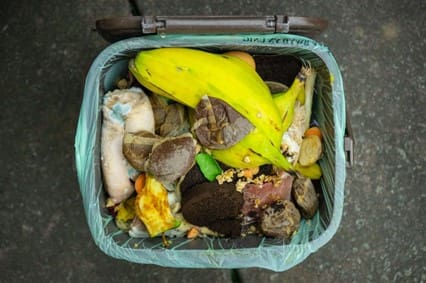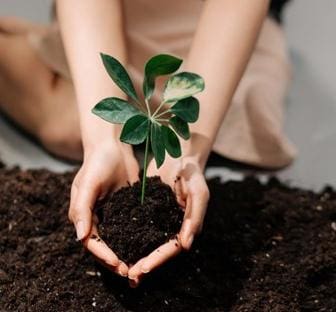
Compostable Bags: A Solution or Pollution?
The compostable bag was first introduced to the retail industry to curb the plastic problem and close the loop on the production of carrier bags. In this blog, Rotajet Systems discuss whether the compostable bag is helping to combat pollution or just contributing to it.
Rotajet has 30 years’ experience specialising in the design and manufacture of innovative industrial recycling equipment. The company has developed a full range of decontamination, size reduction and separation machinery, allowing customers to process rigid and plastic films into pure granulated plastic.
What are compostable bags made from?
These bags are commonly made from vegetable matters, such as potato and corn starch, with the benefit that these materials are naturally decomposable. Because of this, these bags were originally brought in as an alternative to one-use plastic carrier bags.
With their dual usability, compostable bags can not only be used to bring home your big weekly shop but be repurposed to line compost bins at home.
With the ability to be decomposed by microorganisms such as bacteria, the compostable bag has often even been favoured over other one-use alternatives such as the ‘Bag For Life.’
Are compostable bags better for the environment?
A common misconception about the biodegradable bag is that decomposition will occur in the natural environment. This leads people to throw them in general waste or into nature with the belief that they will naturally biodegrade.
The reality is that the bags need to be treated in special optimum conditions to decompose effectively, which requires exposure to the right levels of moisture, heat, bacteria, and light. This often means they must be collected and harvested by places such as industrial composting plants.
To be considered a ‘compostable bag,’ the material must conform to the standards set by the governing body. For members of the European Union, this means adhering to the EN 14995 directive, whereby compostable products must have visibly disintegrated within three months and biodegrade by at least 90% in six months when being treated at 60°C in an industrial composting plant.
So yes, these bags do actually compost when delivered to the correct place. If so, these compostable bags help create a circular solution and, with the use of natural materials, could reduce or even eradicate the use of the unrecyclable single-use plastic bag.
The issue with compostable bags
These bags are usually safe to throw in food or garden waste for this to be collected and composted. However, the issue with this process is that very often, end-users of the compostable bag don’t know where their food waste is sent to.
While some households might have their food waste collected for industrial composting plants, others could be sent for processing in an Anaerobic Digestion (AD) plant.
A vital stage of AD plants is to dry the materials. Due to their high-water content of up to 54%, compostable bags require an extended drying period before their dry matter can be processed, which can often cause problems.
Another issue with the biodegradable bag is that it has been confused with recyclable plastic and placed in with plastic recycling by end-users. Whilst it is estimated that plastic recycling plants have the capacity to deal with up to 10% contamination from compostable bags, these bags have been known to present a much wider issue than just causing contamination.
Due to their high elasticity and lightweight structure, compostable bags tend to get wrapped around the rotors, screw augers and other components within the recycling plants, causing the machinery to be jammed and ultimately resulting in machine downtime.
The compostable bags which have survived the mechanical recycling process have been known to end up in recycled goods where, as originally intended, have begun to decompose, leaving gaps in recycled products and causing them to be unfit for use.
Made from similar petrochemical-based materials to conventional plastic but the difference being added compound which causes the bag to disintegrate gradually in the presence of light or oxygen. If not disposed of properly, it often happens that they will disintegrate into toxic sludge.
To a certain extent, the fate of biodegradable bags, much like that of recyclable plastic, lies in the hands of the end-user. By placing biodegradable bags in the brown food compost caddy provided by the local authorities, the material can be correctly processed, decompose as intended and create a sustainable plastic bag alternative.
This blog was written and submitted by the Rotajet team. For more blogs like this one, visit https://plasticwashing.co.uk/news/.
Rotajet
01924 271446
Website
Email







